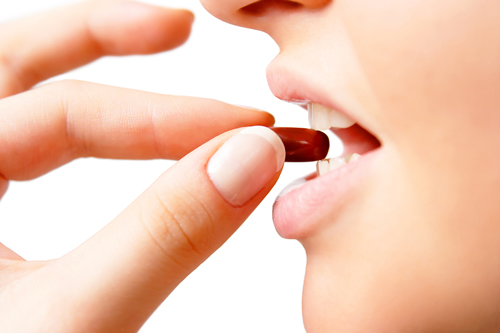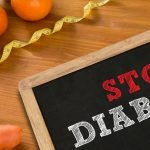If you’ve seen the headlines in the news and on TV over the past several months, you have no choice but to conclude that not only are supplements useless, but in fact, they’re downright dangerous. Beneath the headlines we are confronted with a seminal question: are supplements one of the greatest health frauds ever perpetrated on an unsuspecting public or is this a concerted effort by the establishment to discredit a thriving industry that inexpensively and massively benefits vast numbers of people, at the expense of big pharma and the medical industry? Read the headlines and there’s no mistaking on which side of the question the mainstream media comes down. Multivitamins are a dangerous waste of money. And antioxidants provide no health benefits and either cause or accelerate cancer. Here are just a handful of the actual headlines–most were published in just the last few days.
- Studies Suggest Multivitamins Are Useless and Possibly Dangerous1 “Studies Suggest Multivitamins Are Useless And Possibly Dangerous.” December 17, 2013. Inquisitr. (Accessed 1 Mar 2014.) http://www.inquisitr.com/1065039/studies-suggests-multivitamins-are-useless-and-possibly-dangerous/
- When Vitamins Backfire2 Beth Skwarecki. “When Vitamins Backfire.” February 4, 2014. PLOS Journals. (Accessed 1 Mar 2014.) http://blogs.plos.org/publichealth/2014/02/04/vitamins-backfire/
- Vitamin D health benefits found questionable at best3 Meg Madison. “New study results: Vitamin D health benefits found questionable at best.” 24 Feb 2014. Examinner.com (Accessed 1 Mar 2014.) http://www.examiner.com/article/new-study-results-vitamin-d-health-benefits-found-questionable-at-best
- Supplements Tied to Higher Prostate Cancer Risk4 “Supplements Tied to Higher Prostate Cancer Risk.” 21 Feb 2014. ABC News Radio. (Accessed 1 Mar 2014.) http://www.kmbz.com/pages/18443151.php?
- Antioxidants may speed up lung cancer progression5 “Antioxidants may speed up lung cancer progression.” 31 January 2014. Medical News Today. (Accessed 1 Mar 2014.) http://www.medicalnewstoday.com/articles/272041.php
There is no end to them. The very weight of their numbers in such a short time span seems to answer the question as to their validity. It’s inconceivable that every single one of them could be flawed. One, maybe two could be wrong, but certainly not every single one?
But in fact, that is the case. Every single one of them is flawed; every single one of them is wrong.
And here’s the interesting thing that brings all of these studies into perspective; they are all essentially flawed for the same reasons. With that in mind, let’s now take a quick look at these studies one at a time and see why their conclusions are, for the most part, irrelevant–with one important exception and one crucial twist.
Multivitamins are Useless and Possibly Dangerous
This pronouncement from the medical establishment that rippled throughout the media and all over the internet was actually the result of three studies published simultaneously in the December 17th issue of the Annals of Internal Medicine.
Multivitamins and Cognitive Function
 One of the studies measured the cognitive abilities in 6,000 men over the age of 65.6 Francine Grodstein, Jacqueline O’Brien, Jae Hee Kang, et al. “Long-Term Multivitamin Supplementation and Cognitive Function in Men: A Randomized Trial.” Ann Intern Med. 2013;159(12):806-814-814. http://annals.org/article.aspx?articleid=1789250 The data for the study came from the Physicians’ Health Study II. The participants were asked to take either a multivitamin or a placebo for a period of 10 years. Their cognitive functioning was tested periodically throughout the study. The researchers concluded that multivitamins had no influence on cognitive ability in older men. They did state that doses of the vitamins in the supplement they used may have been too low to provide any observable benefits. Considering that the multivitamin they used was Centrum Silver, that’s pretty much a foregone conclusion. And you can also add in the fact that Centrum Silver has a love affair with inorganic nutrients and the less expensive lower activity forms of nutrients. For example, the vitamin D in Centrum Silver is ergocalciferol (D2), the less effective form of D. It uses synthetic beta-carotene rather than naturally sourced beta-carotene, which is not only less effective, but may actually be harmful. It uses phylloquinone (vitamin K1) as opposed to menaquinone (vitamin K2), even though virtually every study shows that K2 is far and away the more active form.7 Nimptsch K, Rohrmann S, Linseisen J. et al. “Dietary intake of vitamin K and risk of prostate cancer in the Heidelberg cohort of the European Prospective Investigation into Cancer and Nutrition (EPIC-Heidelberg).” Am J Clin Nutr. 2008 Apr;87(4):985-92. http://ajcn.nutrition.org/content/87/4/985.long It uses cyanocobalamin as opposed to methylcobalamin and inorganic sodium selenite versus the organic form, methylselenocysteine. And in fact, as noted in the link above, we looked at the PHS-II study some six years ago and found it and its choice of supplements sorely lacking.
One of the studies measured the cognitive abilities in 6,000 men over the age of 65.6 Francine Grodstein, Jacqueline O’Brien, Jae Hee Kang, et al. “Long-Term Multivitamin Supplementation and Cognitive Function in Men: A Randomized Trial.” Ann Intern Med. 2013;159(12):806-814-814. http://annals.org/article.aspx?articleid=1789250 The data for the study came from the Physicians’ Health Study II. The participants were asked to take either a multivitamin or a placebo for a period of 10 years. Their cognitive functioning was tested periodically throughout the study. The researchers concluded that multivitamins had no influence on cognitive ability in older men. They did state that doses of the vitamins in the supplement they used may have been too low to provide any observable benefits. Considering that the multivitamin they used was Centrum Silver, that’s pretty much a foregone conclusion. And you can also add in the fact that Centrum Silver has a love affair with inorganic nutrients and the less expensive lower activity forms of nutrients. For example, the vitamin D in Centrum Silver is ergocalciferol (D2), the less effective form of D. It uses synthetic beta-carotene rather than naturally sourced beta-carotene, which is not only less effective, but may actually be harmful. It uses phylloquinone (vitamin K1) as opposed to menaquinone (vitamin K2), even though virtually every study shows that K2 is far and away the more active form.7 Nimptsch K, Rohrmann S, Linseisen J. et al. “Dietary intake of vitamin K and risk of prostate cancer in the Heidelberg cohort of the European Prospective Investigation into Cancer and Nutrition (EPIC-Heidelberg).” Am J Clin Nutr. 2008 Apr;87(4):985-92. http://ajcn.nutrition.org/content/87/4/985.long It uses cyanocobalamin as opposed to methylcobalamin and inorganic sodium selenite versus the organic form, methylselenocysteine. And in fact, as noted in the link above, we looked at the PHS-II study some six years ago and found it and its choice of supplements sorely lacking.
So considering the study’s choice of multivitamin, why would you expect any notable results? But the bigger question is: how can you draw conclusions about “ALL” multivitamins based on data using Centrum Silver? And why didn’t the press mention this issue in any of their stories? When you think about it, it’s a bit like conducting a study on the seating capacity of the Smart Car and then announcing that your study found that ALL cars are incapable of accommodating a large family.
Multivitamins, Cancer, and Health Disease
The most extensive of the three studies was a meta-analysis of a number of previous studies.8 Stephen P. Fortmann, Brittany U. Burda, Caitlyn A. Senger, et al. “Prevention of Cardiovascular Disease and Cancer: An Updated Systematic Evidence Review for the U.S. Preventive Services Task Force.” Ann Intern Med. 2013;159(12):824-834-834. http://annals.org/article.aspx?articleid=1767855
The researchers examined the results of 27 previous studies, which included over 450,000 participants. The new study concluded that participants in the earlier studies who took multivitamins were as likely to develop cancer and cardiovascular disease as those who did not. I’m not going to go through all 27 studies, but let’s take a quick look at three of them. The two biggest ones were:
- The Physicians’ Health Study II, and as we already know, that used Centrum Silver. Truly PHS-II is beginning to look like the proverbial bad penny that won’t go away.
- The Supplementation en Vitamines et Mineraux Antioxydants study out of France. All participants took a single daily capsule of a combination of 120 mg of ascorbic acid, 30 mg of vitamin E, 6 mg of beta carotene, 100 micrograms of selenium, and 20 mg of zinc. There are so many things wrong with this formula that it’s hard to know where to begin. First, calling it a “multivitamin” requires a huge stretch of the imagination. Second, the doses are absurdly low, other than the selenium. And third, the formula used all synthetic and inorganic forms of the vitamins and minerals they selected. How could it possibly produce any benefits?
A third study cited by the researchers as a quality study was:
- The Roche European American Cataract Trial, which reported more deaths in the intervention group than in the control group after 3 years–but the difference was noted as not statistically significant.9 Chylack LT Jr, Brown NP, Bron A, Hurst M, Köpcke W, Thien U, et al. “The Roche European American Cataract Trial (REACT): a randomized clinical trial to investigate the efficacy of an oral antioxidant micronutrient mixture to slow progression of age-related cataract.” Ophthalmic Epidemiol. 2002; 9:49-80. http://www.ncbi.nlm.nih.gov/pubmed/11815895 Here the “multivitamin” used was a “mixture of oral antioxidant micronutrients [mg/day] (beta-carotene [18], vitamin C [750], and vitamin E [600])”–with both the beta-carotene and vitamin E of the synthetic kind. Again, calling a three ingredient formula a multivitamin is a huge stretch. And using synthetic beta-carotene and vitamin E changes the entire character of the formula–both in terms of efficacy and safety.
Now the fourth study analyzed by the researchers was in many ways the most interesting.
It involved 1,700 patients who previously suffered one or more heart attacks.10 Gervasio A. Lamas, Robin Boineau, Christine Goertz, Daniel B. Mark, et al. “Oral High-Dose Multivitamins and Minerals After Myocardial Infarction: A Randomized Trial. Ann Intern Med. 2013;159(12):797-805-805. http://annals.org/article.aspx?articleid=1789248
- Researchers found no evidence that the vitamins were effective at preventing subsequent heart attacks. Of the major studies included in the meta study, this is the only one that had anyone knowledgeable about “real” multivitamin formulas on board: Christine Goertz, Vice-Chancellor for Research and Health Policy at Palmer College of Chiropractic. The multivitamin formula tested was not absurd as it contained reasonable amounts of vitamin A, D3, E as d-alpha-tocopherol, K (unfortunately as K1), Niacin, B6, Folic acid, B12 as cyanocobalamin, Biotin, Calcium, Iodine, Magnesium, Zinc, Selenium (unfortunately as inorganic selenium in an amino acid chelate), Copper, Manganese, Chromium, Molybdenum, Potassium (a mere 99 mg), Choline, PABA, Boron, and Vanadium.
So what was the problem with this study? Well, first of all, as the study itself noted,
50 percent of the participants dropped out before the study finished. But more importantly, what in the world would make anyone think that a multivitamin of fairly standard composition would have any impact on heart disease? Only a handful of the ingredients have any indicated benefits for the heart. Vitamin E possibly, but only as a full complex E, and not at 75% of the absurdly low Daily Value. Potassium possibly, but not at 3% of the Daily Value. And vitamin K possibly, but not at 75% of the Daily Value and only as K2, not K1.11 Gast GC, de Roos NM, Sluijs I, Bots ML, et al. “A high menaquinone intake reduces the incidence of coronary heart disease.” Nutr Metab Cardiovasc Dis. 2009 Sep;19(7):504-10. http://www.ncbi.nlm.nih.gov/pubmed/19179058 In the end, it’s almost as though the formula was designed to look good but fail–at least for the purposes of the study.
 The coup de grace on these three studies published in the Annals of Internal Medicine was an editorial published in the same issue that suggested that based on them one could conclude that most supplements and vitamins are simply a waste of money. Its title says it all: Enough Is Enough: Stop Wasting Money on Vitamin and Mineral Supplements.12 Eliseo Guallar, Saverio Stranges, Cynthia Mulrow, et al. “Enough Is Enough: Stop Wasting Money on Vitamin and Mineral Supplements.” Ann Intern Med. 2013;159(12):850-851-851. http://annals.org/article.aspx?articleid=1789253 Not to suggest any bias, but what are the odds that three studies negating the value of supplementation would, by pure chance, appear simultaneously in the same issue of a peer reviewed journal? If you believe that it was coincidental for a moment, then run and buy a Powerball ticket ASAP because the odds are about the same– 1 in 175,223,510.
The coup de grace on these three studies published in the Annals of Internal Medicine was an editorial published in the same issue that suggested that based on them one could conclude that most supplements and vitamins are simply a waste of money. Its title says it all: Enough Is Enough: Stop Wasting Money on Vitamin and Mineral Supplements.12 Eliseo Guallar, Saverio Stranges, Cynthia Mulrow, et al. “Enough Is Enough: Stop Wasting Money on Vitamin and Mineral Supplements.” Ann Intern Med. 2013;159(12):850-851-851. http://annals.org/article.aspx?articleid=1789253 Not to suggest any bias, but what are the odds that three studies negating the value of supplementation would, by pure chance, appear simultaneously in the same issue of a peer reviewed journal? If you believe that it was coincidental for a moment, then run and buy a Powerball ticket ASAP because the odds are about the same– 1 in 175,223,510.
Vitamin D Not Effective
A study published a few weeks ago in the Lancet concluded that there is little justification for prescribing vitamin D to prevent heart attack, stroke, cancer, or fractures in otherwise-healthy people.13 Mark J Bolland,Andrew Grey,Greg D Gamble, Ian R Reid. “The effect of vitamin D supplementation on skeletal, vascular, or cancer outcomes: a trial sequential meta-analysis.” The Lancet Diabetes & Endocrinology – 24 January 2014. http://www.thelancet.com/journals/landia/article/PIIS2213-8587(13)70212-2/abstract
Once again, as with all the previous studies we’ve been discussing, this is a meta study. That is, no new science was performed, no new data collected. This was merely a review of previous studies in an attempt to extract new conclusions from old data. Understand, there’s nothing inherently wrong in this. But it does allow the researchers to reject any studies that don’t fit their conclusions. But what exactly does that mean? As Dr. Jeffery Dach points out, Google Scholar yields 2.2 million published articles concluding that vitamin D supplementation has health benefits. That means the researchers had to exclude 99.9% of the available information on vitamin D to arrive at their conclusion that Vitamin D has no health benefits.14 Jeffrey Dach. “Stop Vitamin D, Are You Joking?” February 21, 2014. Bioidentical Hormone Health. (Accessed 2 March 2014.) http://www.bio-hormone-health.com/2014/02/21/stop-vitamin-d-are-you-joking/ As Bob Dylan said, “You don’t need a weatherman to know which way “that” wind is blowing.”
Inversely, the researchers are free to restrict their pool to the 0.1% of studies that support their conclusions. For example, most of the studies included in their analysis used extremely low doses of vitamin D, levels so low as to be considered nutritionally insignificant by anyone in the alternative health community. And many of the studies relied on vitamin D2 supplementation rather than D3. And as we’ve discussed previously, the two are not synonymous. Not only are they not equivalent, but supplementing with D2 can actually lower levels of D3 in the body.15 David C. Nieman, Nicholas D. Gillitt, R. Andrew Shanely, et al. “Vitamin D2 Supplementation Amplifies Eccentric Exercise-Induced Muscle Damage in NASCAR Pit Crew Athletes.” Nutrients 2014, 6(1), 63-75. http://www.mdpi.com/2072-6643/6/1/63/pdf
Someday, this study’s conclusions may prove to be true, but as presented, it’s essentially meaningless.
Oh, and just to add a different perspective to the issue, we have the study published only a few days ago in the journal Anticancer Research that found that women with high levels of vitamin D were twice as likely to survive breast cancer as opposed to women with low levels of the vitamin in their blood.16 SHARIF B. MOHR, EDWARD D. GORHAM1, JUNE KIM, HEATHER HOFFLICH, CEDRIC F. GARLAND, “Meta-analysis of Vitamin D Sufficiency for Improving Survival of Patients with Breast Cancer.” Anticancer Research March 2014 vol. 34 no. 3 1163-1166. http://ar.iiarjournals.org/content/34/3/1163.full Or to quote from study author, Cedric F. Garland, “There is no compelling reason to wait for further studies to incorporate vitamin D supplements into standard care regimens since a safe dose of vitamin D needed to achieve high serum levels above 30 nanograms per milliliter has already been established.”
Antioxidants Tied to Higher Prostate Cancer Risk
 A new study published in the Journal of National Cancer Institute links supplementation with selenium and vitamin E to an increased risk of prostate cancer. This conclusion is the latest to come out of the SELECT Trial, an ongoing study of more than 35,000 American men aged 55 and older. As we’ve discussed in earlier newsletters, the trial started on the hunch that supplementing with selenium and vitamin E might reduce the risk of prostate cancer. But initial results in 2008 suggested that selenium and vitamin E, taken alone or together, did not prevent prostate cancer. In fact vitamin E supplements appeared to raise the risk of the disease by 17 percent. This latest analysis of the data would seem to confirm that. But as the old saying goes when it comes to data, “Garbage in. Garbage out.” As we’ve discussed in previous newsletter, the SELECT trial is seriously flawed and cannot be used as the basis for any nutritional conclusions. The data being analyzed this time is the same “garbage” used before. The vitamin E used was the synthetic version of E, known to be far less effective than natural E…and possibly harmful. While someday it may indeed be proven that real, full spectrum E increases the risk of prostate cancer, this study didn’t do that.
A new study published in the Journal of National Cancer Institute links supplementation with selenium and vitamin E to an increased risk of prostate cancer. This conclusion is the latest to come out of the SELECT Trial, an ongoing study of more than 35,000 American men aged 55 and older. As we’ve discussed in earlier newsletters, the trial started on the hunch that supplementing with selenium and vitamin E might reduce the risk of prostate cancer. But initial results in 2008 suggested that selenium and vitamin E, taken alone or together, did not prevent prostate cancer. In fact vitamin E supplements appeared to raise the risk of the disease by 17 percent. This latest analysis of the data would seem to confirm that. But as the old saying goes when it comes to data, “Garbage in. Garbage out.” As we’ve discussed in previous newsletter, the SELECT trial is seriously flawed and cannot be used as the basis for any nutritional conclusions. The data being analyzed this time is the same “garbage” used before. The vitamin E used was the synthetic version of E, known to be far less effective than natural E…and possibly harmful. While someday it may indeed be proven that real, full spectrum E increases the risk of prostate cancer, this study didn’t do that.
Antioxidants Accelerate Lung Cancer
And then there’s the study that was published in January in Science Translational Medicine that concluded that supplementing the diet with the antioxidants N-acetylcysteine (NAC) and vitamin E markedly increases tumor progression and reduces survival in mice with induced lung cancer. RNA sequencing revealed that NAC and vitamin E increase tumor cell proliferation by reducing free radical induced DNA damage, which then leads to a reduced p53 expression in mouse and human lung tumor cells. The researchers further stated that because mutations in p53 occur late in tumor progression, antioxidants may accelerate the growth of early tumors or precancerous lesions in high-risk populations such as smokers and patients with COPD.17 Volkan I. Sayin1, Mohamed X. Ibrahim1, Erik Larsson3, et al. “Antioxidants Accelerate Lung Cancer Progression in Mice.” Sci Transl Med 29 January 2014: Vol. 6, Issue 221, p. 221ra15. http://stm.sciencemag.org/content/6/221/221ra15.abstract?sid=7b6aa151-adbc-4165-a3a2-f425fbb93310 To quote from study author Martin Bergo of the University of Gothenburg in Sweden:
“Antioxidants caused a three-fold increase in the number of tumors and also tumor aggressiveness, and the antioxidants caused the mice to die twice as fast.”
Back at the top of this newsletter, I mentioned that all of these studies that we’re talking about today are seriously flawed and essentially irrelevant–and this study is no exception. But this study also brings up the one important exception that I mentioned. Before we get to the exception, however, let’s talk about the flaws.
- As we’ve already discussed in previous newsletters, a study on mice only has about a 4-20% chance of translating to humans, although, to be fair, the p53 gene plays the same role in both mice and humans.
- Once again, the researchers used synthetic vitamin E, not natural full spectrum E. Full spectrum E is an eight part complex consisting of four tocopherols and four tocotrienols. Synthetic E only has one of those eight components: alpha tocopherol. But it gets worse. Of that one component, only 12.5% is natural E. The other 77.5% is a synthetic form of vitamin E not found in nature. It’s not hard to see how that much of a synthetic chemical substance taken every day as a “supplement” might have consequences.
- In fact, this is the exact same scenario that we saw in an earlier study that concluded that beta carotene accelerates lung cancer. That study, like the vitamin E study, was conducted with a synthetic version of the vitamin/antioxidant. However, and this is the important concept to take away from this bullet point, pre-cancerous changes revert to normal tissue with natural beta-carotene supplements, but not with the synthetic supplements.
- This study, as did several of the others that we’ve talked about, concluded with a blanket indictment of all antioxidants based on a study of two. That would be like generalizing about the safety of ALL pain medications based on a study of one or two–Vioxx, for example.18 “Vioxx/David Graham.” Government Accountability Project. (Accessed 3 Mar 2004.) http://www.whistleblower.org/program-areas/public-health/vioxxdavid-graham This is false logic and should never have passed peer review.
The Important Antioxidant Exception
The N-acetylcysteine and vitamin E study, despite its fatal flaws, does bring up an important point. When it comes to free radicals and antioxidants, cancer doesn’t follow the standard rule book. We already know a bit about antioxidants and free radicals, but to understand the problem here, we need to learn a bit more about the p53 gene.
- The p53 gene is encoded in your DNA. It regulates production of a protein known as p53 that functions as a cellular tumor antigen–or more specifically, a tumor suppressor. The p53 protein is crucial in multicellular organisms because it functions as the guardian of the genome by preventing mutations to the genome. In fact, p53 likely has BOTH pro- and antioxidant functions when it comes to suppressing tumors.19 Anna A. Sablina, Andrei V. Budanov,Galina V. Ilyinskaya,et al. “The antioxidant function of the p53 tumor suppressor.” Nat Med. Dec 2005; 11(12): 1306–1313. http://www.ncbi.nlm.nih.gov/pmc/articles/PMC2637821/
- The study just referenced also showed that supplementing with NAC actually backs up the p53 gene and can dramatically inhibit the growth of some tumors.
- And here’s a big surprise: several classes of chemotherapy drugs work by producing a massive increase in free radical production.20 Kenneth A. Conklin. “Cancer Chemotherapy and Antioxidants1.” J. Nutr. November 1, 2004 vol. 134 no. 11 3201S-3204S. http://jn.nutrition.org/content/134/11/3201S.full The free radicals then destroy the cancer cells, or render them incapable of dividing. They of course damage healthy cells too, but the hope is they kill the cancer before they kill you. In any case, using antioxidants while on this sort of therapy is counterproductive as the antioxidants would serve to protect the cancer cells from the free radicals you’re trying to use to destroy the cancer.
Bottom line: cancer cells are capable of turning your body’s free radical/antioxidant systems upside down. They can co-opt antioxidants to protect themselves from free radicals that might kill them. Or they can allow antioxidants to throttle back your p53 gene, which then allows the cancer to multiply like crazy. This leaves us with a conundrum. If you stop using antioxidants before you get cancer, you might be increasing your odds of getting it in the first place. But if you’re using those same antioxidants in the early stages when you first get that cancer, you might be accelerating its growth unbeknownst to you. And if you stop using antioxidants with cancers that are susceptible to those antioxidants, you’re increasing your chances of succumbing to the cancer. What to do? What to do?
But here’s where the twist that I mentioned comes in–something not mentioned in any of the studies we’ve looked at today.
The Crucial Antioxidant Twist
 Not all antioxidants are the same. They are as different as people at a UN meeting. Although, they’re all people, they look different; they act different, have different skills, and talk different languages. Likewise, different antioxidants work on different free radicals; they work in different parts of the body; and they work through different mechanisms. Some protect against aging. Some protect against cardiovascular damage. And some protect against cancer. Anyone making a blanket pronouncement on all antioxidant supplementation based on one study, on one kind of cancer, using one kind of antioxidant–and a synthetic or inorganic one at that–is practicing bad science and doing your health a disservice.
Not all antioxidants are the same. They are as different as people at a UN meeting. Although, they’re all people, they look different; they act different, have different skills, and talk different languages. Likewise, different antioxidants work on different free radicals; they work in different parts of the body; and they work through different mechanisms. Some protect against aging. Some protect against cardiovascular damage. And some protect against cancer. Anyone making a blanket pronouncement on all antioxidant supplementation based on one study, on one kind of cancer, using one kind of antioxidant–and a synthetic or inorganic one at that–is practicing bad science and doing your health a disservice.
In summary, let’s take a quick look at how understanding this “twist” reveals how flawed the above studies’ recommendations concerning cancer and “ALL” antioxidants and “ALL” multivitamin combinations might be.
- Studies have shown that green tea can be effective in inhibiting the growth of lung cancer cells.21 Hong Wang, Shengjie Bian, Chung S. Yang. “Green tea polyphenol EGCG suppresses lung cancer cell growth through upregulating miR-210 expression caused by stabilizing HIF-1a.” Carcinogenesis (2011). http://carcin.oxfordjournals.org/content/early/2011/10/13/carcin.bgr218.full In addition, a 2010 Taiwanese study found that the risk of lung cancer was 5 times higher in those who did not drink green tea. Among smokers, the risk was 12 times higher.22 American Association for Cancer Research. “Green tea could modify the effect of cigarette smoking on lung cancer risk.” ScienceDaily. 13 January 2010. (Accessed 6 Mar 2014.) www.sciencedaily.com/releases/2010/01/100112165108.htm
- As mentioned earlier, studies that have concluded that taking beta carotene supplements actually promotes lung cancer used Lurotin, a synthetic beta carotene, not the natural form. Is there a difference? Actually, the difference is huge and multifaceted, but one major difference is that natural beta carotene always comes paired with alpha carotene. And alpha carotene (along with a number of other carotenoids) has been associated with a decreased risk of lung cancer.23 Ruano-Ravina A1, Figueiras A, Freire-Garabal M, Barros-Dios JM. “Antioxidant vitamins and risk of lung cancer.” Curr Pharm Des. 2006;12(5):599-613. http://www.ncbi.nlm.nih.gov/pubmed/16472151
- And then, of course, there’s the study that showed that using vitamin B6, folate, and methionine in combination can reduce the risk of lung cancer by two-thirds–smokers included.24 Johansson M, Relton C, Ueland P, et al. Serum B Vitamin Levels and Risk of Lung Cancer. JAMA. 2010;303(23):2377-2385. http://jama.jamanetwork.com/article.aspx?articleid=186079
We could go on and on talking about studies that support the cancer protective effects of antioxidants such as curcumin, resveratrol, glutathione, ellagitannins, OPCs, etc.–not to mention the benefits of a number of vitamin combinations including C, D, and many of the B vitamins. But we’ve examined enough to demonstrate the problem making blanket conclusions based on limited studies of antioxidants and vitamins–especially when what’s being studied is synthetic or inorganic.
Conclusion
So what can we take away from all of this?
- Any study connected with a multivitamin only applies to the multivitamin being tested. All multivitamins are not the same. Basing generic conclusions on a study of one mix of vitamins is bad science and irresponsible journalism. Think for a moment about the Miami Heat and the Milwaukee Bucks. Theoretically, they both play basketball in the NBA, but the Heat have won back to back world championships and are currently tied for the best record in the NBA; the Bucks have the worst record. Theoretically, they both play the same game of basketball, but just watching them play tells you that comparison is only theoretical; they’re not playing the same game. You get the point.
- Any study connected with an antioxidant only applies to that antioxidant…and to the particular cancer being studied…and only to the stage of development of the cancer being studied. Just like taking a chemotherapy drug for cancer prevention is unlikely to prove beneficial, certain supplements, which may play a preventative role, may not be suitable once you have cancer. Getting rid of cancer requires a different protocol than preventing it.
- Any study of a synthetic vitamin only applies to the synthetic version of that vitamin. It does not necessarily relate to the natural form of that vitamin. Synthetic and natural vitamins may be “similar” chemically, but they are polar opposites structurally. The molecules of the two different versions frequently bend light in the opposite direction, which should tell any researcher that something isn’t the same. And that gives them hugely different properties. The two that we’ve talked about in this newsletter are vitamin E and beta carotene. No conclusions made concerning synthetic E and beta carotene are necessarily applicable to the natural forms.
And finally, there is every reason to continue taking a “good” natural vitamin supplement on a daily basis. You can rethink that if you are diagnosed with cancer–depending on which cancer it is. There is also every reason for taking a good full spectrum, naturally based antioxidant supplement on a daily basis. But again, if you already have cancer or feel you are prone to getting a particular cancer (are a smoker or have a family history for a cancer), then you should focus on those antioxidants that are known to help with your particular cancer–green tea and curcumin for lung cancer, curcumin and ellagitannins for colon cancer, etc.–and temporarily avoid any others.

References
| ↑1 | “Studies Suggest Multivitamins Are Useless And Possibly Dangerous.” December 17, 2013. Inquisitr. (Accessed 1 Mar 2014.) http://www.inquisitr.com/1065039/studies-suggests-multivitamins-are-useless-and-possibly-dangerous/ |
|---|---|
| ↑2 | Beth Skwarecki. “When Vitamins Backfire.” February 4, 2014. PLOS Journals. (Accessed 1 Mar 2014.) http://blogs.plos.org/publichealth/2014/02/04/vitamins-backfire/ |
| ↑3 | Meg Madison. “New study results: Vitamin D health benefits found questionable at best.” 24 Feb 2014. Examinner.com (Accessed 1 Mar 2014.) http://www.examiner.com/article/new-study-results-vitamin-d-health-benefits-found-questionable-at-best |
| ↑4 | “Supplements Tied to Higher Prostate Cancer Risk.” 21 Feb 2014. ABC News Radio. (Accessed 1 Mar 2014.) http://www.kmbz.com/pages/18443151.php? |
| ↑5 | “Antioxidants may speed up lung cancer progression.” 31 January 2014. Medical News Today. (Accessed 1 Mar 2014.) http://www.medicalnewstoday.com/articles/272041.php |
| ↑6 | Francine Grodstein, Jacqueline O’Brien, Jae Hee Kang, et al. “Long-Term Multivitamin Supplementation and Cognitive Function in Men: A Randomized Trial.” Ann Intern Med. 2013;159(12):806-814-814. http://annals.org/article.aspx?articleid=1789250 |
| ↑7 | Nimptsch K, Rohrmann S, Linseisen J. et al. “Dietary intake of vitamin K and risk of prostate cancer in the Heidelberg cohort of the European Prospective Investigation into Cancer and Nutrition (EPIC-Heidelberg).” Am J Clin Nutr. 2008 Apr;87(4):985-92. http://ajcn.nutrition.org/content/87/4/985.long |
| ↑8 | Stephen P. Fortmann, Brittany U. Burda, Caitlyn A. Senger, et al. “Prevention of Cardiovascular Disease and Cancer: An Updated Systematic Evidence Review for the U.S. Preventive Services Task Force.” Ann Intern Med. 2013;159(12):824-834-834. http://annals.org/article.aspx?articleid=1767855 |
| ↑9 | Chylack LT Jr, Brown NP, Bron A, Hurst M, Köpcke W, Thien U, et al. “The Roche European American Cataract Trial (REACT): a randomized clinical trial to investigate the efficacy of an oral antioxidant micronutrient mixture to slow progression of age-related cataract.” Ophthalmic Epidemiol. 2002; 9:49-80. http://www.ncbi.nlm.nih.gov/pubmed/11815895 |
| ↑10 | Gervasio A. Lamas, Robin Boineau, Christine Goertz, Daniel B. Mark, et al. “Oral High-Dose Multivitamins and Minerals After Myocardial Infarction: A Randomized Trial. Ann Intern Med. 2013;159(12):797-805-805. http://annals.org/article.aspx?articleid=1789248 |
| ↑11 | Gast GC, de Roos NM, Sluijs I, Bots ML, et al. “A high menaquinone intake reduces the incidence of coronary heart disease.” Nutr Metab Cardiovasc Dis. 2009 Sep;19(7):504-10. http://www.ncbi.nlm.nih.gov/pubmed/19179058 |
| ↑12 | Eliseo Guallar, Saverio Stranges, Cynthia Mulrow, et al. “Enough Is Enough: Stop Wasting Money on Vitamin and Mineral Supplements.” Ann Intern Med. 2013;159(12):850-851-851. http://annals.org/article.aspx?articleid=1789253 |
| ↑13 | Mark J Bolland,Andrew Grey,Greg D Gamble, Ian R Reid. “The effect of vitamin D supplementation on skeletal, vascular, or cancer outcomes: a trial sequential meta-analysis.” The Lancet Diabetes & Endocrinology – 24 January 2014. http://www.thelancet.com/journals/landia/article/PIIS2213-8587(13)70212-2/abstract |
| ↑14 | Jeffrey Dach. “Stop Vitamin D, Are You Joking?” February 21, 2014. Bioidentical Hormone Health. (Accessed 2 March 2014.) http://www.bio-hormone-health.com/2014/02/21/stop-vitamin-d-are-you-joking/ |
| ↑15 | David C. Nieman, Nicholas D. Gillitt, R. Andrew Shanely, et al. “Vitamin D2 Supplementation Amplifies Eccentric Exercise-Induced Muscle Damage in NASCAR Pit Crew Athletes.” Nutrients 2014, 6(1), 63-75. http://www.mdpi.com/2072-6643/6/1/63/pdf |
| ↑16 | SHARIF B. MOHR, EDWARD D. GORHAM1, JUNE KIM, HEATHER HOFFLICH, CEDRIC F. GARLAND, “Meta-analysis of Vitamin D Sufficiency for Improving Survival of Patients with Breast Cancer.” Anticancer Research March 2014 vol. 34 no. 3 1163-1166. http://ar.iiarjournals.org/content/34/3/1163.full |
| ↑17 | Volkan I. Sayin1, Mohamed X. Ibrahim1, Erik Larsson3, et al. “Antioxidants Accelerate Lung Cancer Progression in Mice.” Sci Transl Med 29 January 2014: Vol. 6, Issue 221, p. 221ra15. http://stm.sciencemag.org/content/6/221/221ra15.abstract?sid=7b6aa151-adbc-4165-a3a2-f425fbb93310 |
| ↑18 | “Vioxx/David Graham.” Government Accountability Project. (Accessed 3 Mar 2004.) http://www.whistleblower.org/program-areas/public-health/vioxxdavid-graham |
| ↑19 | Anna A. Sablina, Andrei V. Budanov,Galina V. Ilyinskaya,et al. “The antioxidant function of the p53 tumor suppressor.” Nat Med. Dec 2005; 11(12): 1306–1313. http://www.ncbi.nlm.nih.gov/pmc/articles/PMC2637821/ |
| ↑20 | Kenneth A. Conklin. “Cancer Chemotherapy and Antioxidants1.” J. Nutr. November 1, 2004 vol. 134 no. 11 3201S-3204S. http://jn.nutrition.org/content/134/11/3201S.full |
| ↑21 | Hong Wang, Shengjie Bian, Chung S. Yang. “Green tea polyphenol EGCG suppresses lung cancer cell growth through upregulating miR-210 expression caused by stabilizing HIF-1a.” Carcinogenesis (2011). http://carcin.oxfordjournals.org/content/early/2011/10/13/carcin.bgr218.full |
| ↑22 | American Association for Cancer Research. “Green tea could modify the effect of cigarette smoking on lung cancer risk.” ScienceDaily. 13 January 2010. (Accessed 6 Mar 2014.) www.sciencedaily.com/releases/2010/01/100112165108.htm |
| ↑23 | Ruano-Ravina A1, Figueiras A, Freire-Garabal M, Barros-Dios JM. “Antioxidant vitamins and risk of lung cancer.” Curr Pharm Des. 2006;12(5):599-613. http://www.ncbi.nlm.nih.gov/pubmed/16472151 |
| ↑24 | Johansson M, Relton C, Ueland P, et al. Serum B Vitamin Levels and Risk of Lung Cancer. JAMA. 2010;303(23):2377-2385. http://jama.jamanetwork.com/article.aspx?articleid=186079 |












This comes as no surprise to
This comes as no surprise to me as Big Pharma is greedy and wont be happy until they can cut the competition out of the loop. I only hope that I can continue to buy the vitamins and supplements I need.
Thanks Very Much for
Thanks Very Much for revealing again the duplicity of the the pharms industry. I suspected and hoped someone would layout the truth as clearly as you have done. I have worked for forty years in and around science and health organizations so have some appreciation of how things work or not if money is involved in the equation.
Vitamin C and many other
Vitamin C and many other vitamins can save ones life. I feel as long as BIG PHARMA does not make money from the sale of the supplements they would rather the public doesn’t take them. I just painfully weaned off the drug: LEXAPRO which had the side effect of Atrial Fibrillation which almost caused me a stroke and/or my life. Now I take L Tryptophan without side effects. I am a citizen of the great USA, and I have the right to choose if I want to buy vitamins. Mrs. B.C.B.
If it wasn’t for me taking
If it wasn’t for me taking vitamins and antioxidants I wouldn’t be alive now.I was diagnosed with severe heart failier over 2 years ago and was told I could die at any time, I wasn’t expected to live.But I was given such a mixture of 15 drugs I knew were having a detrimental effect on me I told them I wasn’t happy taking them.the cardiologist allowed me my wish to stop 10tablets I knew were killing me more than my heart failier.I was in a wheelchair and had a poor quality of life.Then it all changed I bought a book on line under heart health and I’ve not looked back.Its called Reverse Heart Desease now by Stephen T.Sinatra,M.D.Ive been taking the vitamins and minerals suggested in the book ever since and have a much better quality of life.I don’t.say I’m cured my heart was in a bad way.Im not in a chair and I just on occasions use a walking stick.Every year I go for an echo cadia test which is due next week but last year I knew they could see how much better I was waking without aid etc.they asked me what’s the book you’ve told us about on heart disease,I had one in my bag to gave it to them.I knew it was because I’d become a different person to what they’d seen me like 2years previous.My cardiologist doesn’t see me any more she’s against natural remedies.The same woman does my test every year she thinks its amazing how much better I am.But whatever they say or believe I know it’s reading the book and taking vitamins and minerals is what’s keeping me alive and happy.Im glad I could share these truths with you.i also turned my husbands health around when he had the most aggressive prostrate cancer he was damaged after radium but were turning that around as well he’s getting on brilliant with natural remedies of vitamins and minerals plus a good quality diet.Thank you.Elaine
I’ve read that book and many
I’ve read that book and many others since I began having a Heart Problem myself and I am very sure if I had listened to the Cardiologist in taking his drug therapy, it would have killed me by now. (9 years later)
The Modern Medical Paradigm is seriously flawed and profits come first with all else second place.
Take charge of your own health, in staying away from Modern Medical Doctors and Hospitals you should live much longer than putting your faith into them.
The sad thing is that the
The sad thing is that the Sheeple of this country, who for some reason are not capable of Critical Thinking, buy into all of this Pharmaceutical Sponsered Propaganda and then follow such bad advice.
Awesome ,precise and very
Awesome ,precise and very specific article!!
And of course,pharmaceutical companies would not like it…
Thank you so much!
Outstanding article. I love
Outstanding article. I love the careful research and excellent presentation. I am going to add a link to this article in the blog I am writing about synthetic verses whole food vitamins. Thank you!
Keep cookin’ John. Ninety
Keep cookin’ John. Ninety percent of what you advocate is just common sense – in other words, what I learned from my grandmother and practical experience – miraculously preserved for all God’s serious-minded, observant creatures.
It’s the balance of your disclosures that attract me to your News Letters and ongoing research. Without a progressive approach we’re all dead in the water. So it’s critical that we support those who are in a position to hold the lines and chart they way, say nothing of exposing the profiteers.
Simplicity and economy have kept this old body active for 85 years (without drugs) with only minimal supplements and “natural remedies” for unmindful oversights – for which I confess there is no excuse!
We can all “guess” that big
We can all “guess” that big pharma is behind these cowardly attacks.
Just about every month one hears that “some” study has shown that a particular natural medicine MAY be dangerous or useless – but we are never told anything about the alleged study.
I was hoping this article would throw some light on the source of this propoganda, naming names and showing who is making up these lies.
Great articles like this can prove these anti-natural medicine claims as false, but the damage will be done unless the scammers behind these lies are named and shamed.
Lawmakers and the public at large need to know they are being fed a steady drip of deliberate mis-information to introduce wild misconceptions about the natural medicine industry.
Thank you for your cogent and
Thank you for your cogent and concise analysis. When news of the studies you’ve mentioned here broke, I was reminded of the serious dangers of researcher bias, flawed research designs and methodologies as well as over-generalizing results. So I dismissed the information without examination. I simply chalked it up to more bad, sloppy science. In this instance, you’ve elucidated the problems eloquently with verbal economy. Kudos to you. Personally, I would like to address the issue of “researcher arrogance”–not a technical term, I know. But honestly, just how dumb does the medical establishment believe us to be? Pretty darn dumb, I’d say, given the horrific statistics on how many Americans are killed and maimed each year due solely to physician error. It’s offensive! But what is most offensive is an apparent agenda to undermine our out-of-the-box thinking.
Beautifully written and a
Beautifully written and a forceful and cogent argument. As the writer and editor of curriculum for Bauman College Holistic Nutrition and Culinary Arts, I’m faced with having to explain research flaws (which are part of standard practice) to our students, as well as to the clients in my private practice.
One point not mentioned is that, as far as I’ve seen, none of these studies report on the dietary patterns of their participants. Since it’s well known that supplements can fill in nutrient gaps, but can never take the place of a healthful diet, we need to add this to the cumulative effects of inadequate and improper supplementation. And never, ever considered are other important lifestyle factors, such as exercise, social connection, spiritual practice, and stress management. Our research techniques are reductionist to an absurd degree.
The coating of the pill is
The coating of the pill is dangerous. It causes paranoia
Conventional medical doctors
Conventional medical doctors conducting research with/on vitamins is like a butcher performing surgery. Sure, they all know how to wield sharp tools; but the training is totally different, and so will the result.